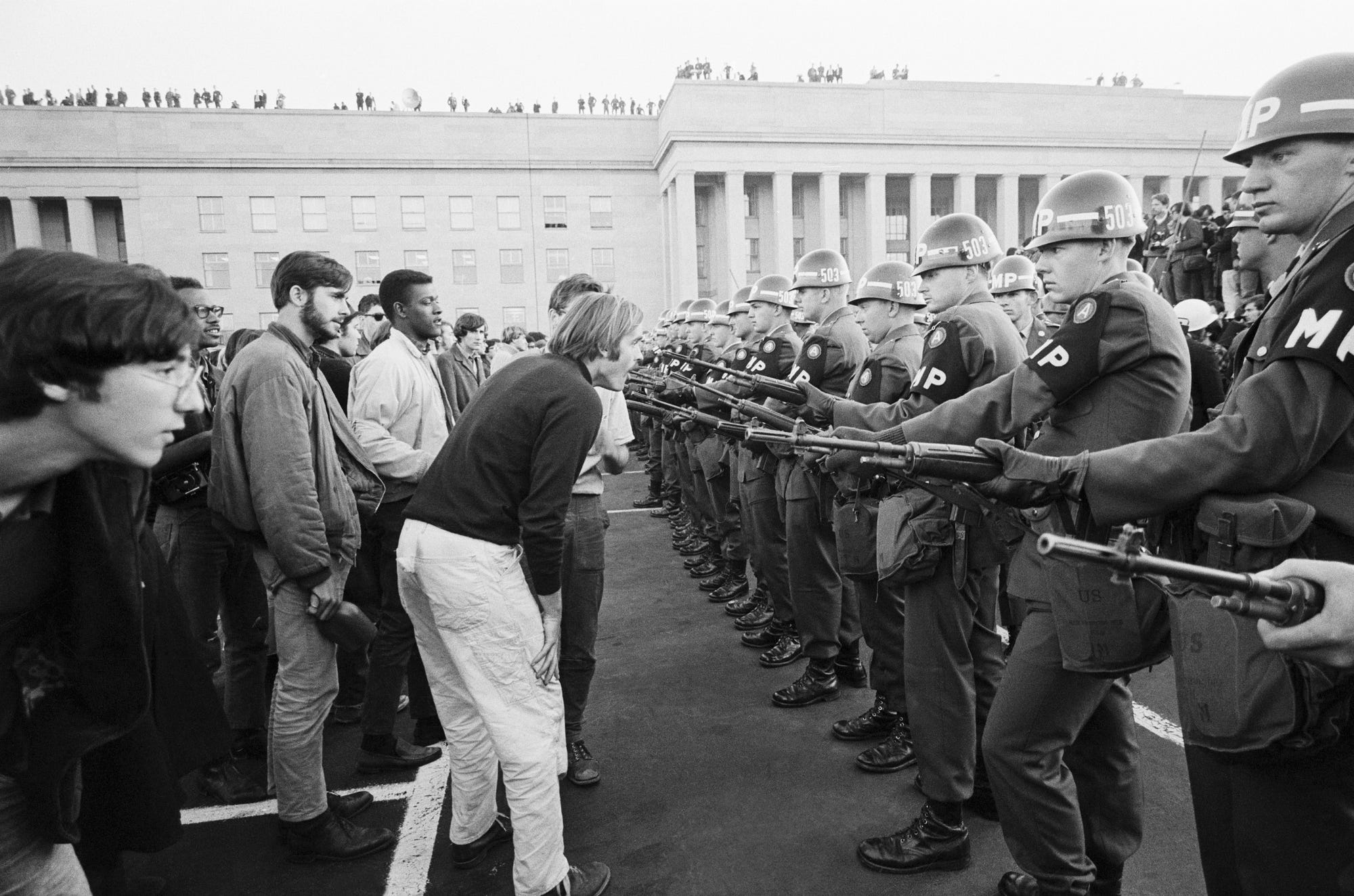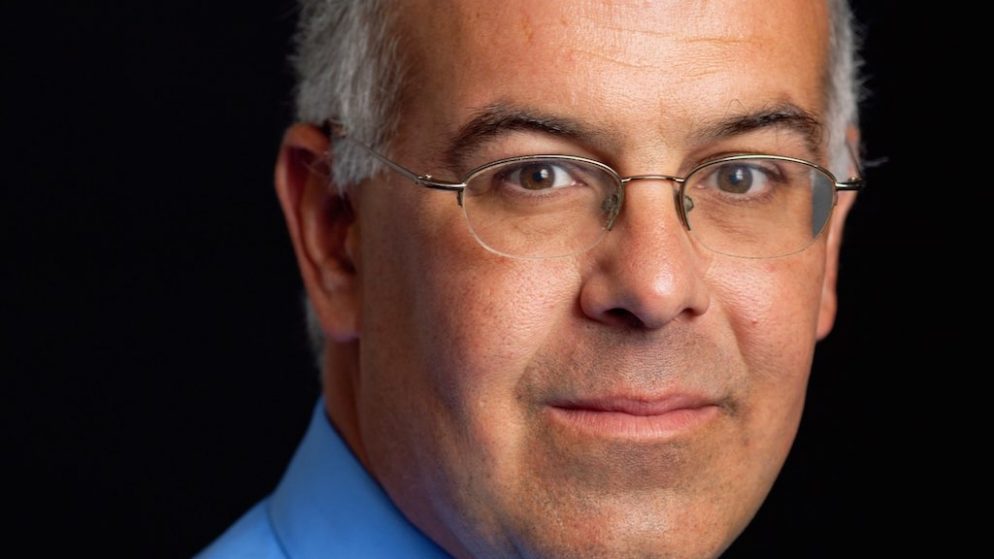| Abbie Hoffman |
Abbie Hoffman was (alongside Jerry Rubin) Provocateur-in-Chief of the anti-Vietnam War movement in the late 1960s. As a student at Georgetown University in Washington, DC, I participated as an antiwar protester and also as a reporter for our college radio station, WGTB-FM, in the October 21, 1967, "March on the Pentagon."
 |
| The 1967 "March on the Pentagon" |
This march was a huge gathering of about 70,000 at the Lincoln Memorial to hear protest songs by Phil Ochs ("I Declare the War Is Over") and antiwar speeches by David Dellinger and Dr. Benjamin Spock. Then Hoffman led 50,000 of us on a hike to the Pentagon, where a second rally took place, hippies tried to "levitate" the Pentagon building, and about 650 protestors were arrested for civil disobedience.
It was, yes, a time of cultural upheaval. Now we are experiencing another such upheaval. Brooks writes that "in 2016, members of the outraged working class elected their own Abbie Hoffman as president" — in the person of Donald Trump. Today, the President of the United States is our new Provocateur-in-Chief.
What happened? Brooks says:
After World War II the Protestant establishment dominated the high ground of American culture and politics. That establishment eventually failed. It tolerated segregation and sexism, led the nation into war in Vietnam and became stultifying.
Then came the ascendancy of Hoffman, Rubin, et al. among much of the youth of America. But we Baby Boomers quickly shed our trappings of hippiedom and became the new leaders of our culture:
The late 1960s were a time of intense cultural conflict, which left a lot of wreckage in its wake. But eventually a new establishment came into being, which we will call the meritocratic establishment.
That was us as we entered our late 20s and early 30s: college-educated meritocrats who were setting out to run things our way. We were the ones who:
... cut [our] moral teeth on the civil rights and feminist movements. [We] embraced economic, social and moral individualism. [We] came to dominate the institutions of American society on both left and right.
And, Brooks notes, Hillary Rodham Clinton was one of us.
| Hillary Rodham Clinton in 1969 |
Hillary Clinton's whole life has been oriented toward success. Her family came from the middle echelons of American society. She moved up and away from that starting point, until she came within an eyelash of being elected our first woman president.
As a good meritocrat, she set aside whatever inclinations she'd had as a younger woman to be a cultural provocateur. She learned how to turn her intelligence and drive into national leadership — until, that is, a large segment of the electorate decided to rebel against her sort of leadership.
For me personally, this new cultural transition is hard to accept. Brooks says,"Trump is shredding the culture and ending the dominance of the meritocratic establishment." Well, I was never much of a meritocratic climber myself, but a great many of my friends and associates were. I'm not at all ready to tear down what my generation — however flawed — has built.
Yet there is nothing so constant as change. We all have to adapt. The kids who are just entering adulthood today are especially on the spot. Brooks:
Because of [Trump], a new culture will have to be built, new values promulgated and a new social fabric will have to be woven, one that brings the different planets back into relation with one another.
That’s the work of the next 20 years.
Good luck to you, all ye children (and, soon, grandchildren) of the meritocrats!




